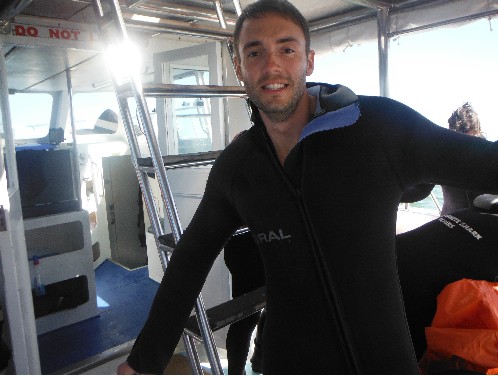Health Options Worldwide Pivots To Offer MyHint, A Wellness Platform Backed by Science

Health Options Worldwide, the healthcare IT startup begun by Clark Lagemann and David Goldstein, has pivoted and now is concentrating on a new consumer offering called MyHint, as well as a corporate offering it will roll out to smaller companies that cannot afford an expensive multifaceted wellness plan. The company operates out of the JuiceTank coworking space in Somerset.
The company is also competing in a Techweek New York competition Oct. 17, 2013. For the LAUNCH competition, 30 startups will demo their products and services to attendees, potential investors and judges. After a round of audience voting, five companies will be selected to pitch onstage to a panel of expert judges comprised of venture capitalists and industry innovators. The winning startup will receive $100,000 in cash and prizes.
MyHint, which is fully HIPAA-compliant, focuses on creating behaviors that drive earlier clinical recognition of disease. “With MyHint, you can predict what your health will look like in the future and find out when and for what reasons to see a doctor,” the company’s website says.
For companies, this prevention system applies behavioral economics to increase employee use of services that can diagnose and treat disease, which leads to a reduction of healthcare costs. It also provides management dashboards for employers to track engagement, wellness vendor utilization, risks, and other trends in a HIPAA-compliant fashion.
Lagemann and Goldstein launched Health Options Worldwide about two and a half years ago, before the Affordable Health Act (ACA), colloquially known as ObamaCare, was even introduced. The company’s object was to help patients find high-quality, low-cost physicians across the country. The founders started aggregating users and signing contracts with hospitals across the country and all over the world.
However, as ObamaCare became a reality, uncertainty set in. “As late as about nine months ago we thought we might still have a viable business model,” Lagemann recalled. And so, while the Supreme Court upheld the ACA and attempts to repeal it were turned back, the company began looking at other options.
The startup founders read through the ACA legislation and took many meetings with their advisory team, trying to figure out where their expertise could fit into the changing healthcare landscape. After many, many nights and weekends, “We took a highly qualified guess as to what the market really needed,” Lagemann said.
“We started working toward a system that would let individuals take more control over their own health, working with simple reminders. We wanted to get them back into their doctor’s offices for the right reasons at the right times,” Lagemann said. The product went through many iterations before it became the platform the founders decided to launch, he added.
Science backs up the system the startup has now developed. The founders established a relationship with Gretchen Chapman, a professor of psychology at Rutgers. Her research combines judgment and decision-making with health psychology to examine the decision processes underlying preventive health behaviors such as vaccination.
Chapman worked with the HOW team while they were developing MyHint, giving them insights into her research so they could help people navigate the core problems preventing them from seeking care.
Lagemann recognizes that the competition out there is severe. “Our true differentiation is that the software is backed by science. We take a clinical approach to organizing the thought processes. Can we get a 300-pound man to lose weight? Maybe not. But we can get him into the doctor’s office to get his prostate checked. You can’t take a person from zero to 60 in three seconds,” he said.
MyHint is in the process of establishing relationships with smaller partners and insurance companies. Lagemann says there are many companies that would like to offer a wellness program to reduce insurance costs, but cannot because they are too expensive. “We want to help out the smaller employer who doesn’t have the money for a full-blown wellness program,” he said. Companies that can reduce the costs of healthcare for their employees will be rewarded under new regulations, he said.
Speaking about the startup’s need to completely change its business model based on new political realities, Lagemann said, “You can’t control what the government does. We needed to be adaptive to the marketplace and align with the new opportunities. We think there is a lot of opportunity here.”
#####

